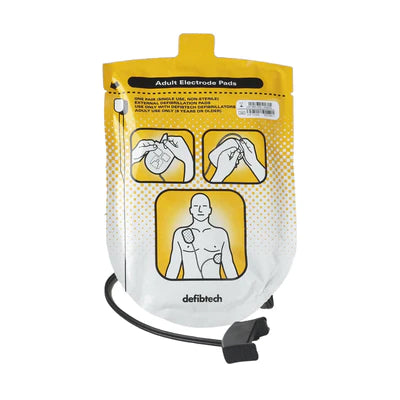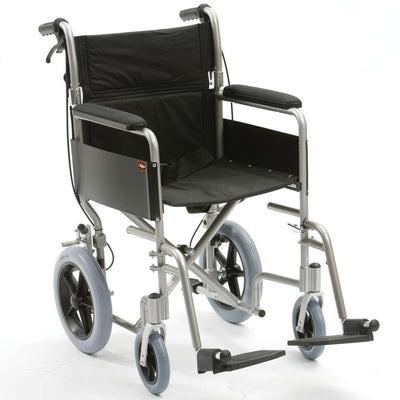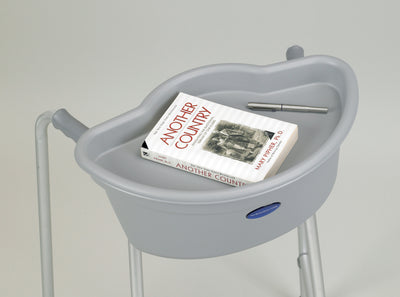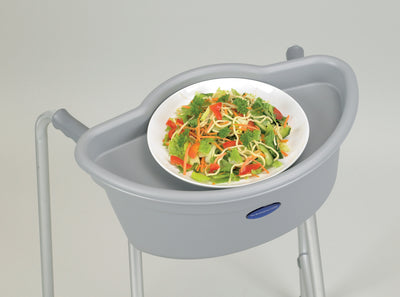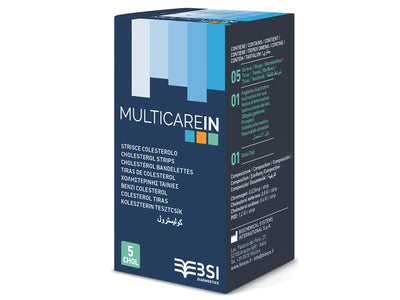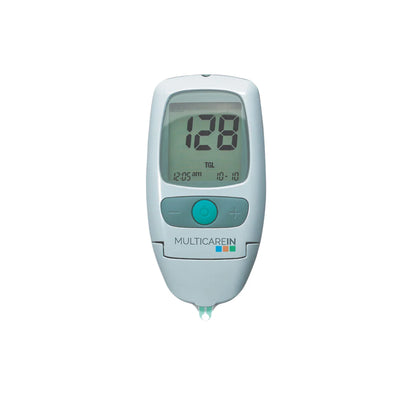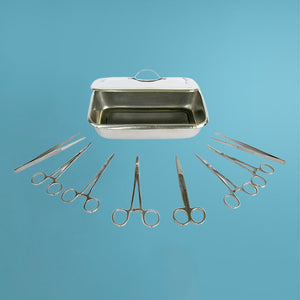Blogs
Facing dementia requires understanding, compassion, and a supportive community. Let's build a world that uplifts those affected.

Is this Poor Memory or Dementia?
26.09.2023
Memory Loss and Dementia
We all have moments of forgetfulness and, as we age, we might even regularly find that recalling information like names and details becomes a lot tougher than before. Forgetfulness is incredibly common, especially in older age - but when should we start to worry that our 'senior moments' are actually a sign of something more serious, like dementia, and that it's time to seek professional help for proper support?
What causes memory loss?
There are many causes of memory loss. Anxiety, being over-tired or stressed, boredom and even symptoms of depression can make our recall fail. Some medicines can also cause our memories to slow down - such as steroid tablets and strong painkillers - and medical conditions like Parkinson's Disease, under-active thyroid, urine infections and even bad, chesty colds.
So it's always best to rule out / treat any of these conditions before considering dementia as the reason for your memory loss.
When does memory loss become a concern?
When memory loss is more short-term than long (e.g. if you can recall long-standing memories clearly but struggle to remember more recent events) then your doctor may consider running tests for dementia.
People with early stage dementia can find themselves forgetting names and addresses, or repeatedly searching for the word for common everyday objects. Learning new skills becomes much more difficult, and you might become more easily confused or forget to carry out regular daily tasks like washing, cleaning your house or even eating. Others around you may notice that you're asking the same questions time and again.
Dementia can also lead to personality changes and low mood, and others around you might notice that you're repeating yourself regularly and asking many of the same questions over and over again.
If these symptoms begin to show then your doctor may well run tests to rule out thyroid issues and other infections before considering a course of action for one of the many dementia based conditions.
It's worth noting that although dementia does get more common with age, the chances of developing the condition (even at the grand old age of 95) is still only a two in five chance.
What if dementia is suspected?
There are over 60 types of dementia, with varying degrees of severity. Your GP will refer you for a full hospital assessment with scans, blood tests and full-personal consultation to ascertain what form your condition takes and how to proceed with a suitable form of treatment.
Dementia treatments will involve a balance of both medicinal and occupational support and care. While several medications are successfully being used to balance symptoms in patients with early stage Alzheimer's disease, for example, the effectiveness of any medicinal treatment is certainly improved by the introduction of a specialist care plan to help the patient live as independently as possible for as long as possible.
A care team, including doctors, specialist nurses, physiotherapists and occupational therapists will be put together to ensure all aspects of treatment are in place - and a home visit will be recommended to ensure there are suitable adaptations put in place (such as kitchen aids to help with cooking and eating in the home, grab bars and bathing accessories to prevent falls and even dressing aids for a more independent life).
With a good care plan, many people with dementia can live fulfilling lives for years, often independently and with good family support.
For all your Medical and Homecare supplies give us a call at Mediworld.
We have over 40 years experience in medical, surgical and home health supplies and we're always on hand to chat if you need support or advice. Follow us on Twitter and Facebook.
Learn More Now

Can Zoom calls help Dementia?
07.02.2024
Video conference calls - love them or loathe them, in this past year they’ve moved out of the board room and straight into our private homes and everyday lives. Now, a new study has revealed that these online forums and conferencing facilities are, in fact, pretty good for our health, especially as we age.
The health benefits of Zoom calls
In a year where we’ve been staying at home to save lives, the Zoom call/online conference call has provided a lifeline for many of us to keep in touch with family, friends and colleagues around the world. Quiz nights, book groups, work calls, family ‘gatherings’ and even GP consultations have all moved online and have shown some surprising benefits for our health.
Loneliness
Where loneliness and isolation could have been an inevitability for so many during this Covid pandemic, the ability to keep in touch with others across the internet has bolstered social interactions and helped to stave off some of the mental and physical health issues associated with being lonely.
Dementia
A recent study has shown that older people who have adopted this new online technology could inadvertently be helping to ward off dementia and other complications associated with forms of Alzheimers.
Researchers have found that older people who frequently use online communication alongside traditional social interactions in person or over the phone showed less of a decline in episodic memory – the ability to recollect meaningful events, the impairment of which is a sign of major forms of dementia.
The 15 year-long study looked at the impact of using various types of communication forms in over 11,000 people aged 50 - 90 years old and found that those who used only traditional methods of communication like face-to-face chats and telephone conversations experienced a greater decline in their memory than those who also adopted social activity online.
Does Social Media keep you young?
The study looked at the use of other types of online activity including the use of social media platforms, and found that older people who regularly use Facebook, Instagram etc offer themselves more protection against memory decline than those who don’t. Professor of the study, conducted at the Geller Institute, Snorri Rafnsson called on older people to wholeheartedly embrace as many new forms of technology as they could, saying that the more new platforms they adopt the better chance they give themselves of protecting against Alzheimers and dementia.
“It is fair to say that all the Zooming that went on during lockdown might well have provided older people with a protective cushion against dementia,” he said. “I’m sure it did have a beneficial impact on older people.” Snorri Rafnsson, associate professor of ageing and dementia care at the Geller Institute.
Are you ready to go online?
So, perhaps it’s time to open that Facebook account or show the youngsters how to shine on TikTok!
Not sure where to start? There are many great resources to help support you with new technology - why not ask at your local library or get in touch with one of the great charities like Age UK to sign up for a course?
You could even follow us on our social channels for lots of great information on ageing, medical care and general health and wellbeing tips. Follow us on Twitter and Facebook and don't forget to read our other great health blogs!
Need more help to improve the disabled access to your business? We're always here to help so get in touch today.
For all your Medical and Homecare supplies give us a call at Mediworld.
We have over 40 years experience in medical, surgical, mobility and home health supplies and we're always on hand to chat if you need support or advice.
Learn More Now
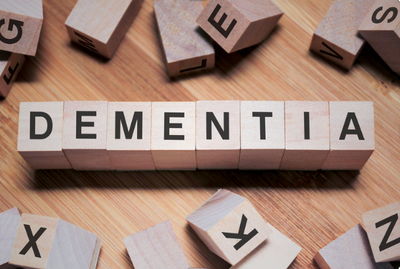
What is FTD Dementia?
26.09.2023
Imagine a deep and intricate maze of thoughts and memories within our minds. However, hidden within this maze, exists a terrifying presence that slowly erases the threads of our identity. This eerie phenomenon is known as Frontotemporal Dementia (FTD). FTD is a rare condition, accounting for just 1 in 20 dementia diagnoses.
The discovery of Frontotemporal Dementia (FTD) can be traced back to the late 19th century when pioneering neurologists began unravelling the complexities of various neurological disorders. It was during this era that Arnold Pick, a Czech neurologist, first identified a distinct form of dementia characterised by significant behavioural and language impairments.
Today, ongoing research continues to shed light on the complexities of FTD, exploring its genetic underpinnings, neurobiological mechanisms, and potential therapeutic avenues. Bringing a sounding awareness to the public, particularly in light of Hollywood actor Bruce Willis' recent diagnosis. The journey to discover and comprehend FTD has been a collaborative effort of brilliant minds, paving the way for improved diagnosis.
From ancient times to modern science, this blog post carries us through a journey of discovery, unravelling the mysteries of FTD and shining a spotlight on its unique symptoms, risk factors, and the strategies that empower both patients and caregivers alike.
What is FTD?
Frontotemporal Dementia (FTD) is an "umbrella term" encompassing a group of dementias that primarily affect the frontal and temporal lobes of the brain. It is a progressive neurodegenerative disorder that primarily affects the frontal and temporal lobes of the brain. It is characterised by changes in behaviour, personality, and language abilities. FTD is a relatively rare form of dementia, accounting for about 10-20% of all dementia cases.
When the frontal and temporal lobes of the brain's nerve cells undergo degeneration, it results in FTD. Although the precise reason for this degeneration is not yet known, it is thought to be linked to aberrant protein accumulations in the brain. In some cases, FTD is associated with genetic mutations inherited from family members, while in other cases, the cause is unknown.
As the condition advances, individuals may have a greater variety of symptoms, including cognitive decline, memory loss, and issues with mobility and coordination, leading to severe impairment and reliance on others for everyday tasks.
Who is at Risk of FTD?
While dementia typically emerges in the twilight years of life, Frontotemporal Dementia (FTD) ventures beyond the expected boundaries. FTD can affect both men and women and typically manifests between the ages of 40 and 65, although it can occur in individuals both younger and older. Unlike other forms of dementia that are more commonly associated with older age, FTD often strikes during a person's prime working and family-building years.
Symptoms of FTD
Understanding these symptoms is crucial for both patients and their loved ones to navigate the challenges that FTD presents. This will help with understanding how to both handle and give care to individuals with this condition.
Let's delve into the details of the symptoms of FTD:
Personality and Behaviour Changes:
One of the hallmark symptoms of FTD is a significant alteration in personality and behaviour. Individuals may exhibit unusual or inappropriate behaviour, such as making socially inappropriate comments or gestures, showing a lack of empathy or concern for others, or displaying impulsive and reckless actions.
Neglecting personal hygiene, overeating, and experiencing a loss of motivation are also common manifestations. These changes can be puzzling and distressing for both the individual and their loved ones.
Language and Communication Problems:
FTD often impacts language and communication skills. Patients may experience difficulty finding the right words or struggle with articulation, resulting in slow or hesitant speech. They may encounter challenges in forming grammatically correct sentences or expressing their thoughts coherently. Additionally, the inappropriate use of words or misplacing them in sentences can occur, leading to confusion or misunderstandings during conversations.
Memory Problems:
Unlike more common forms of dementia like Alzheimer's disease, memory problems tend to manifest later in the progression of FTD. While memory may initially remain relatively intact, individuals may start experiencing difficulties in recalling recent events or retaining new information. The decline in memory function is typically overshadowed by the prominent personality and behavioural changes observed in FTD.
Problems with Mental Abilities:
Cognitive impairment is another significant aspect of FTD. Individuals may struggle with concentration and attention, finding it challenging to focus on tasks or stay engaged in conversations. They may also face difficulties with planning, organisation, and problem-solving. These cognitive deficits can have a profound impact on daily functioning, affecting work performance, decision-making, and overall independence.
It is important to note that the symptoms of FTD can vary among individuals, and not everyone will experience all of these manifestations. Additionally, the specific symptoms and their severity may depend on the affected areas of the brain.
Early detection and diagnosis are crucial for timely intervention and management of FTD. If you or your loved ones notice any of these symptoms, it is advisable to seek medical evaluation and support from healthcare professionals specialising in dementia care.
Together, we can navigate the complexities of FTD, fostering understanding, empathy, and effective strategies to enhance the quality of life for individuals living with this condition.
It's important to note that FTD symptoms develop gradually over time, becoming more pronounced as the disease advances.
Quick Therapy for FTD
Although significant research is underway to understand in depth the underlying causes of FTD, there is currently no known prevention or cure for this condition. However, there are practical strategies that can improve the quality of life for both patients and caregivers. The focus is on enjoying life while implementing techniques to alleviate challenges associated with FTD.
In conclusion, it is nice we go over in summarised bits what we learnt from this blog post.
Frontotemporal Dementia is a lesser-known form of dementia that affects a specific region of the brain responsible for personality, behaviour, language, and speech.
Understanding the symptoms and risk factors associated with FTD is crucial for early detection and effective management.
While there is currently no cure for FTD, adopting practical strategies and seeking support can significantly improve the lives of patients and their caregivers.
If you need further assistance or advice on medical and homecare supplies, don't hesitate to reach out to Mediworld. With over 40 years of experience in medical, surgical, mobility, and home health supplies, our knowledgeable team is always ready to offer support and guidance. Remember to explore our numerous other informative health blogs to stay informed and empowered.
We hope this article has provided you with valuable insights into FTD, encouraging a deeper understanding of this less-known form of dementia. Stay informed, seek support, and remember that you're not alone in this journey.
Learn More Now

12 Effective Methods to Counter Dementia
12.12.2023
Dementia is a degenerative condition that affects cognitive function, memory, and mental abilities. With the global population ageing, dementia has become a growing concern for many individuals and their families.
While it may not be possible to prevent dementia entirely, increasing evidence suggests specific lifestyle changes and habits can significantly reduce the risk of developing this debilitating condition.
In this comprehensive guide, we will explore 12 proven ways to prevent dementia naturally and address common questions about the role of supplements and specific habits that promote brain health.
Nutritional Recommendations for Dementia Prevention
Imagine if you could arm your brain with a protective shield, helping it stay sharp and agile. Well, you can - with the power of a balanced diet. The meals you savour have a role in safeguarding your cognitive functions. Foods packed with antioxidants serve as your brain's personal bodyguards, defending your precious brain cells against damage and, as a result, helping to slam the door in dementia's face.
Antioxidants can be found in a wide range of foods - juicy berries, lush leafy greens, robust whole grains, and fatty fish that dance through our oceans. These aren't just foods - they're your allies in maintaining a healthy mind.
Picture this - blueberries and strawberries, nature's sweet candies, doing much more than just pleasing your palate. These fruits are diligent soldiers on the front lines, protecting your brain cells from harm, putting the brakes on cognitive decline, and boosting your brain's overall performance.
Then, enter the realm of green leafy vegetables. Spinach and kale might look unappetising at first glance, but they're dense with nutrients - vitamin K, lutein, and folate - all contributing to a well-nourished, fit brain.
Whole grains like quinoa, brown rice, and whole wheat products are also part of this elite league. They're filled to the brim with fibre and vitamin E, paving the way for your brain to function at its peak.
Lastly, remember the seafood stars - mackerel, sardines, and salmon. Rich in omega-3 fatty acids, they're like excellent for your memory and cognitive skills.
So, the next time you fill your plate, remember, you're not just eating - you're fuelling your brain with the best defences nature has to offer.
Lifestyle Modifications to Ward Off Dementia
Revamping your lifestyle can pack a powerful punch in bolstering your brain health, sharpening your cognitive functions, and putting up a defence against dementia. Exercise isn't just about building muscle or burning calories – it's your brain's best friend too! With every heartbeat during a workout, you're fueling your brain with more oxygen and improving blood flow.
But that's not all – by embracing an active lifestyle, you're essentially turning into a master builder who's busy constructing new brain cells, enhancing their neural connections, and paving the way for improved cognitive abilities.
But the fight for a dementia-free life doesn't end with a brisk walk or a vigorous workout. Here's another piece of the puzzle – keeping your body weight in check. If the scales are tipping towards the heavier side, you might be opening the doors for unwanted guests like diabetes, high blood pressure, and high cholesterol levels – the notorious trio are known to increase the risk for dementia. Staying within a healthy weight range isn't just about looking good; it's about ensuring your brain stays in its prime for years to come.
Mental Exercises to Counter Dementia
You can stimulate the power of your mind through mental activities, an essential strategy in dementia prevention. This proactive approach keeps your brain agile, hones cognitive skills, and supercharges your brain's processing capabilities.
Consider the immense satisfaction of unravelling a gripping novel, tackling challenging puzzles, orchestrating wins in strategy games, or mastering a musical instrument or a foreign language. Each of these tasks not only provokes your intellect but also sparks your creativity, paving the way for enhanced cognitive health.
As you expand your mind with these mental activities, you can also bring your friends along for the ride. Engage with friends over a challenging board game or discuss thought-provoking ideas in a book club. Any social interactions are beneficial to your brain's training.
Such shared experiences foster an enriching social environment, which is crucial in maintaining mental health and warding off dementia. As you explore these mind-stretching, socially rewarding activities, you're building a formidable defence against cognitive decline. Each intellectual challenge is another step in your journey towards a healthier, sharper mind.
Physical Activities to Counter Dementia
Physical exercise offers multiple benefits to the brain. It increases blood flow to the brain, supplying essential nutrients and oxygen, encouraging the growth of new brain cells, and supporting cognitive function. Moreover, regular physical activity helps maintain a healthy weight, balance, and flexibility, thereby reducing the risk of chronic conditions linked to dementia.
Aerobic exercises like walking, swimming, or cycling can enhance mental performance and play a crucial role in dementia prevention. These exercises increase the heart rate and blood flow, thereby supplying the brain with vital nutrients and oxygen.
Resistance training, including weight lifting and bodyweight exercises, strengthens muscles and improves balance, reducing the risk of falls and injuries that could lead to cognitive decline.
Even less intense exercises such as yoga and stretching can contribute to overall flexibility, balance, and stress reduction, all crucial for maintaining cognitive health.
Importance of Rest and Quality Sleep
Rest and quality sleep are crucial to cognitive health. Sleep serves as a critical period for the brain to rest, rejuvenate, and process the day's information. During sleep, the brain eliminates harmful proteins and toxins that may build up over time and contribute to cognitive decline and dementia.
Adults should aim for 7-9 hours of sleep each night. Maintaining a regular sleep schedule, fostering a peaceful sleep environment, and establishing a sleep routine can contribute to improved sleep quality. Poor sleep habits can result in cognitive decline and health issues like obesity, diabetes, and cardiovascular disease, all of which are risk factors for dementia.
You can read more about how you can improve your sleeping habits read more now.
Social Interaction and Engagement
Remaining socially active and nurturing robust connections with others is vital in preventing cognitive decline and lowering the risk of dementia. Continuous social interaction is linked to better mental health, a stronger immune system, and a lower risk of dementia.
Socialising stimulates the brain, fostering the development of new connections and potentially delaying the onset of dementia symptoms.
To maintain a healthy social network, individuals can participate in group classes, join community clubs, maintain close relationships, and remain open to making new friends.
Stress Management
Think of stress as an uninvited guest at a dinner party, sapping the joy from the evening. Now, imagine if that guest had the power to affect not only your mood but also your cognitive health, with the potential to set the stage for dementia. Chilling, isn't it? This is the underhanded power that chronic stress can wield over your brain's health.
The brain, under relentless stress, gets bathed in a cocktail of hormones, such as cortisol, which can be the equivalent of throwing a wrench into the fine-tuned machine of your mind. The aftermath? Muddled memory, impeded cognitive function, and even the death of brain cells.
However, don't let this cast a cloud over you. There's a silver lining. Your body has innate tools to counteract stress: the art of relaxation. Think of deep breathing exercises, meditation, or yoga - these aren't just for soul-searchers and fitness fanatics. They're for anyone who wants to keep their mind razor-sharp and tranquil.
And sometimes, our stressors might be like a complex puzzle that's hard to solve alone. Don't hesitate to seek professional help. A coach in your corner can make all the difference when you're wrestling with life's challenges. Consider this your call to action to take control of your stress and, by extension, your cognitive destiny.
Avoiding Smoking
Choosing to quit smoking is a decision that can significantly improve your overall health and substantially reduce the risk of dementia.
Smoking has a detrimental impact on your brain, acting as a catalyst for cognitive decline. It's an influential risk factor for dementia, a condition that everyone naturally wants to avoid. But there's good news: when you decide to quit smoking, you take an essential step towards safeguarding your cognitive health.
The benefits of quitting smoking extend well beyond dementia prevention. Other health risks linked to smoking, such as lung cancer, heart disease, stroke, and chronic obstructive pulmonary disease, also decrease when you quit.
Remember, each cigarette you don't light is a step towards a healthier future. By quitting smoking, you're not just improving your present state of health but also investing in your future well-being.
Read more on how to quit smoking.
Reducing Alcohol Intake
Taking steps to reduce alcohol consumption is an effective strategy on the road to preventing dementia. Over-indulgence in alcohol is often tied to cognitive decline, putting one on a path that could potentially lead to dementia.
When we think about alcohol, we often underestimate its ability to cause harm beyond a temporary hangover. Yet, excessive drinking can directly assault our brain cells and interfere with the role of neurotransmitters, which are crucial to cognitive function. The consequence? Our ability to think, remember, and learn could be drastically affected.
But the effects of heavy drinking don't stop at our brains. Alcohol's damaging reach extends to other vital parts of our body. Your liver, heart, and digestive system are all at risk.
While moderate alcohol consumption may seem harmless excessive drinking can substantially increase the risk of cognitive decline and other health problems. So remember, reducing your alcohol intake is not only an investment in your cognitive health but also a pledge to your overall well-being.
Management of Chronic Conditions
Actively managing and treating chronic conditions like diabetes, high blood pressure, and high cholesterol is critical for maintaining brain health and reducing dementia risk.
These conditions, if left untreated, can contribute to cognitive decline and negatively impact overall health. By managing these chronic diseases, individuals can minimise their risk of developing dementia later in life.
Regular medical checkups and monitoring of chronic conditions will help ensure they are managed appropriately. Following prescribed treatment plans, such as taking medications consistently and incorporating lifestyle modifications like a healthy diet and regular exercise, will enable individuals with chronic diseases to maintain their health better.
Cardiovascular Health Monitoring
Cardiovascular health directly affects brain health. An efficiently functioning heart provides the brain with the oxygen and nutrients necessary for proper function. Maintaining a healthy cardiovascular system is vital for reducing the risk of cognitive decline and dementia.
To promote cardiovascular health and reduce dementia risk, individuals should focus on a heart-healthy lifestyle. This includes managing blood pressure and cholesterol levels, maintaining a healthy body weight, and engaging in regular exercise. A balanced diet rich in fruits, vegetables, whole grains, lean proteins, and healthy fats is another key aspect of maintaining cardiovascular health.
Engaging in Cognitive and Creative Activities
After all those scary topics, let us end this list with a more fun activity we can use to combat dementia.
Unleashing your creativity is not just a source of joy and self-expression; it's also a fantastic way to keep your brain buzzing with vitality and prevent cognitive decline.
There's a whole palette of activities out there, perfect for sparking that creative flame and honing those cognitive abilities, no matter what stage of life you're in.
Picture yourself, brush in hand, as you let your imagination take the lead, swirling colours across a blank canvas. Artistic endeavours such as painting or drawing not only cultivate your creativity but also put your brain in a state of 'flow', a kind of mindful engagement that's beneficial for brain health.
You may see yourself crafting an enchanting tale or a moving poem. Writing, be it stories, poems, or even journaling, is an activity that stirs up your creative thoughts while giving your brain a satisfying workout.
You may be sculpting a piece of clay, feeling its texture as your hands mould it into a tangible creation. Engaging with tactile art forms like pottery or sculpture keeps your hands busy and your brain sharp.
Ever thought about dipping your toes into the world of drama? Taking part in a local theatre production can be a fun, engaging way to stimulate your mind and meet new people.
And why not try your hand at photography? Capturing the beauty around you not only enhances your attention to detail but also stimulates your cognitive abilities.
Through these activities, you're not just creating art - you're also promoting relaxation, exploring new perspectives, and crafting new neural pathways that can help to keep cognitive decline at bay. So go ahead, dive into the vibrant world of creativity, and let it serve as a delightful, colourful tool for brain health.
Conclusion
In conclusion, protecting and enhancing brain health is not a mere possibility—it's a journey of actions, decisions, and habits that can create a profound impact on your cognitive functions. From fostering physical fitness, maintaining a balanced diet, and embracing quality sleep, to managing stress, quitting smoking, moderating alcohol intake, and immersing oneself in creative pursuits, every step you take towards a healthier lifestyle is a stride in safeguarding against cognitive decline and dementia.
This journey, however, isn't a solitary one. It's important to engage with healthcare professionals, friends, and family along the way. It's a shared voyage of discovery and well-being. And remember, while the goal is to prevent dementia, the path of this journey is filled with rewards—increased vitality, better physical health, sharper cognition, and an overall enhanced sense of well-being.
In essence, the steps you take to ward off dementia don't just lead to a healthier brain but to a more fulfilling, vibrant, and enriched life. So embark on this journey today and let each step echo with the promise of better cognitive health and a future filled with vibrant memories.
Learn More Now

Improving Sleep for Dementia Patients
20.09.2023
Sleep disorders are very common for dementia patients. Medication and changes in the natural production of melatonin can affect the quality and quantity of sleep a person gets. Many dementia sufferers will find that they sleep a lot more, while some will find that they struggle to sleep at night and can, instead, be at risk of night wandering and confusion.
Sleep medication is not usually recommended for dementia patients, but establishing a healthy sleep routine can be hugely beneficial. Here are some useful ideas to help dementia sufferers to find a healthy relationship with sleep, and improve their day to day lives.
Routine
Dementia patients often lose track of time and struggle to stay on track with the rhythms of a regular day. Introduce a good sleep routine and make sure the patient sticks to it as much as possible. Going to bed and getting up at the same time each day will help to ensure the dementia patient gets enough sleep, as well as preventing them from inadvertently becoming distracted and staying awake throughout the night, when they could potentially come to harm.
Napping
Often a daytime nap is very beneficial for an elderly person or one who is affected by dementia. However, it’s best to avoid napping too late in the day and even better if naps can be taken before lunch so they don’t jeopardise the evening sleep. Your GP can advise on a good sleep routine, including how to keep a sleep diary.
Fresh Air
Maintaining a healthy body clock will be made all the easier with exposure to daylight. Get into the routine of taking the patient outdoors for a short walk (if they are able to) or even to sit in the fresh air and soak up some vitamin D - even, and especially, in winter (just make sure to wrap up warm). Walking in the morning will help to motivate the patient to get dressed, keep active or focused and will ready them for a short nap before lunch.
Food
Eating a heavy meal in the evening can often prevent natural sleep, as the body is using a lot of energy to digest the food. Drinking too much in the evening will inevitably cause sleep to be interrupted for through the night trips to the toilet. Dementia patients often experience smaller appetites or can lose interest with eating during a meal so it’s best to start the day with a larger meal, and decrease the size of the meals as the day goes on. The same applies to drinking. It’s very important to keep hydrated but it’s also important to be mindful about reducing the liquid intake as the evening approaches.
Comfort
Make the bedroom as comfortable as possible. Use blackout blinds to keep the room dark, make sure the bedroom is a comfortable temperature by using a fan in the summer and extra heaters if needed in winter. Make the bed as comfortable as possible - invest in a heated mattress cover, a supportive, comfortable cervical pillow or a knee pillow for a supportive sleep.
Need more help? We're always here to help so get in touch today.
For all your Medical and Homecare supplies give us a call at Mediworld.
We have over 40 years experience in medical, surgical, mobility and home health supplies and we're always on hand to chat if you need support or advice. Follow us on Twitter and Facebook and don't forget to read our other great health blogs!
November 2021
Learn More Now


